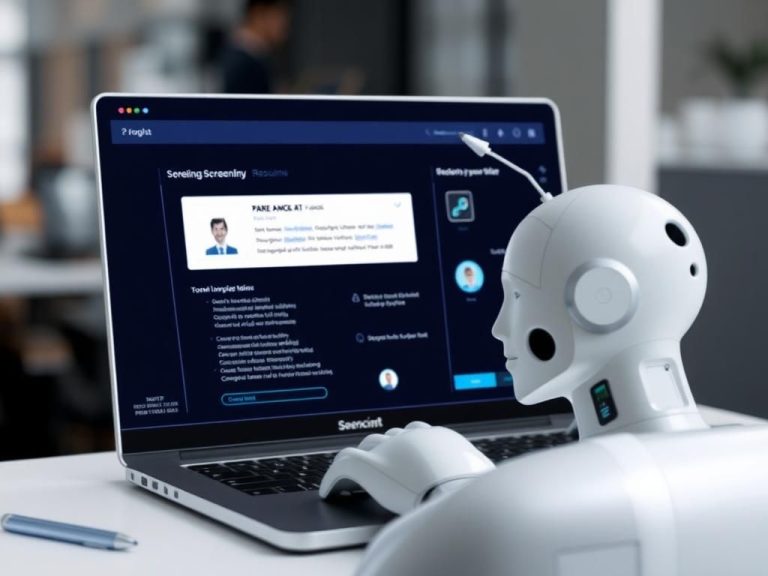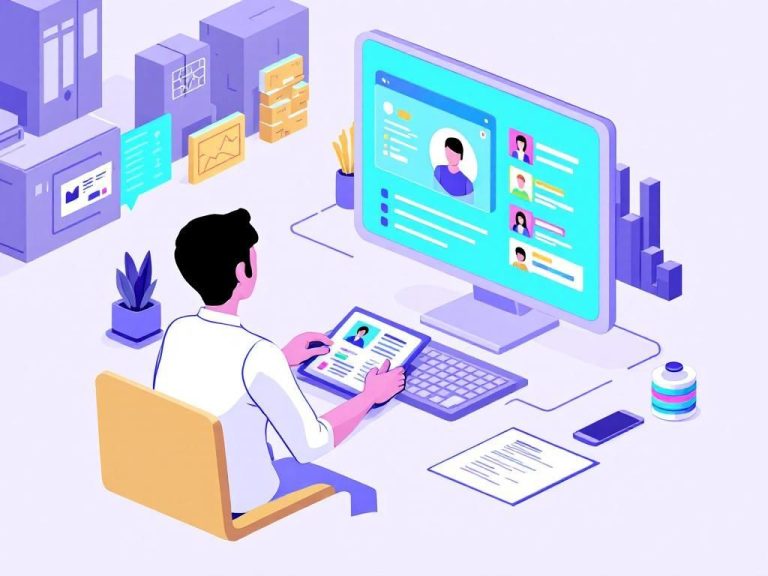As we move further into the digital age, the integration of artificial intelligence (AI) into Human Resources (HR) is becoming more prevalent. In 2025, AI tools will not only streamline HR processes but also enhance decision-making and employee engagement across organizations. This article explores some of the most promising AI tools for HR automation, focusing on their features, benefits, and the value they add to the workplace.
The Evolution of AI in HR
Artificial Intelligence has been transforming various sectors, and HR is no exception. Here are some pivotal changes we can expect:
- Recruitment Efficiency: AI tools are increasingly used to streamline recruitment processes, from screening resumes to scheduling interviews.
- Employee Engagement: AI chatbots and virtual assistants will play a critical role in fostering employee engagement.
- Data-Driven Insights: Machine learning algorithms will analyze employee data to provide actionable insights for management.
Key Features of AI Tools for HR
When evaluating AI tools for HR automation, certain features stand out:
1. Applicant Tracking Systems (ATS)
Modern ATS platforms utilize AI to efficiently manage the recruitment process, offering features like:
- Resume Parsing: Automatically extracts candidate information from resumes, saving time.
- Candidate Scoring: Algorithms rank candidates based on their fit for the position, reducing bias.
2. Chatbots for HR Support
AI-driven chatbots can handle a variety of HR tasks:
- 24/7 Availability: Provides instant responses to employee queries at any time.
- Onboarding Assistance: Guides new hires through the onboarding process, ensuring a smooth transition.
3. Predictive Analytics
Using historical data, predictive analytics can foresee trends and assist in strategic planning:
- Employee Retention: Identifies at-risk employees based on performance data.
- Talent Acquisition: Predicts future hiring needs based on workforce trends.
Top AI Tools for HR Automation in 2025
Here are some leading AI tools that are set to revolutionize HR automation in the near future:
1. Lever
Lever is an advanced ATS that enhances collaboration among hiring teams. Its AI features include:
- Smart Candidate Recommendations: Suggests candidates based on hiring history.
- Team Collaboration Tools: Centralizes candidate feedback and discussions.
2. Lattice
Lattice provides performance management solutions with a strong emphasis on employee development:
- Continuous Feedback Mechanism: Facilitates ongoing performance conversations.
- Goal Tracking: Aligns employee goals with organizational objectives.
3. Pymetrics
Pymetrics leverages neuroscience and AI for talent assessment:
- Gamified Assessments: Evaluates candidates through engaging games that measure cognitive and emotional traits.
- Bias Reduction: Uses AI to promote diversity in hiring.
Benefits of AI in HR
The adoption of AI tools in HR comes with numerous benefits:
Increased Efficiency
By automating repetitive tasks, HR personnel can focus on strategic initiatives.
Enhanced Decision-Making
AI provides data-driven insights, enabling better decision-making and reduced bias in hiring.
Improved Employee Experience
AI tools can personalize the employee experience, from onboarding to continuous learning, thereby increasing engagement.
Implementation Challenges
While the benefits are significant, several challenges must be addressed during implementation:
- Data Privacy Concerns: Protecting employee data is paramount.
- Integration with Existing Systems: Ensuring compatibility with current HR systems can be complex.
- Change Management: Employees may resist adopting new technologies.
Future Trends in HR Automation
As AI technology continues to evolve, several trends are likely to shape the future of HR:
1. Enhanced Personalization
AI will enable more personalized employee experiences, tailoring development programs to individual needs.
2. Expansion of Remote Work Solutions
As remote work continues to gain traction, AI tools will need to adapt to support virtual collaboration and team dynamics.
3. Ethical AI Use
Organizations will increasingly focus on using AI ethically, emphasizing transparency and reducing bias in decision-making.
Conclusion
As we look forward to 2025, the role of AI in HR automation will be vital in shaping the future workplace. By leveraging these advanced tools, organizations can improve efficiency, enhance employee engagement, and make better strategic decisions while navigating the challenges that come with technological adoption. The potential of AI in HR is vast, and organizations that embrace this change will be well-positioned to thrive in the evolving business landscape.
FAQ
What are the top AI tools for HR automation in 2025?
In 2025, leading AI tools for HR automation include platforms like Workday, BambooHR, and Pymetrics, which streamline recruitment, employee management, and performance evaluation.
How can AI improve the recruitment process for HR?
AI can enhance the recruitment process by automating resume screening, predictive analytics for candidate success, and chatbots for initial candidate engagement.
What benefits can businesses expect from implementing AI in HR?
Businesses can expect increased efficiency, reduced recruitment costs, improved employee engagement, and more data-driven decision-making by implementing AI in HR.
Are there any challenges in adopting AI tools for HR automation?
Yes, challenges include data privacy concerns, resistance to change from employees, and the need for adequate training to effectively use AI tools.
How does AI enhance employee performance management?
AI enhances employee performance management through continuous feedback mechanisms, personalized development plans, and data analytics that identify performance trends.
What future trends should HR professionals watch in AI technology?
HR professionals should watch for trends such as AI-driven employee wellness programs, advanced predictive analytics, and the integration of machine learning in talent acquisition.




